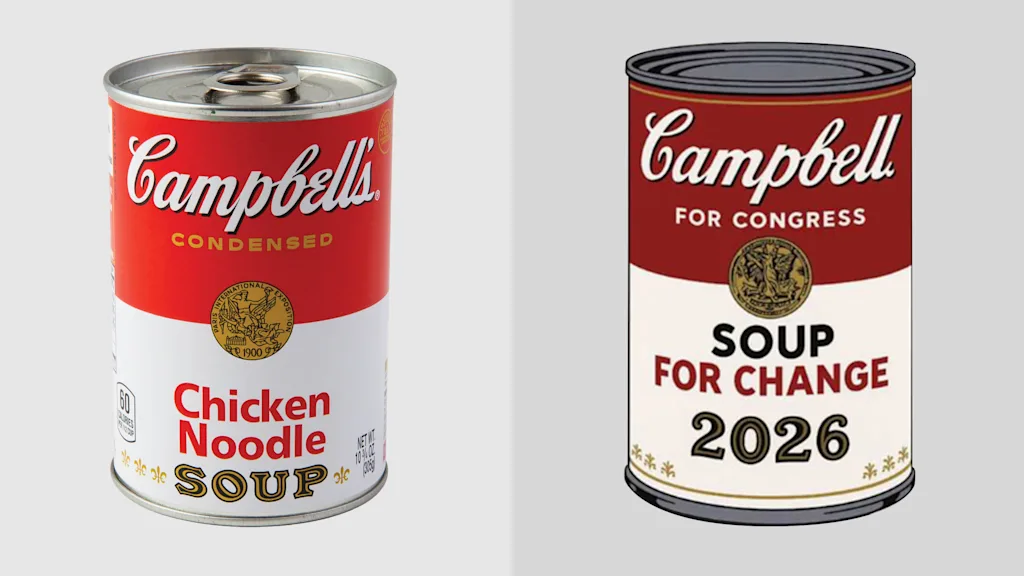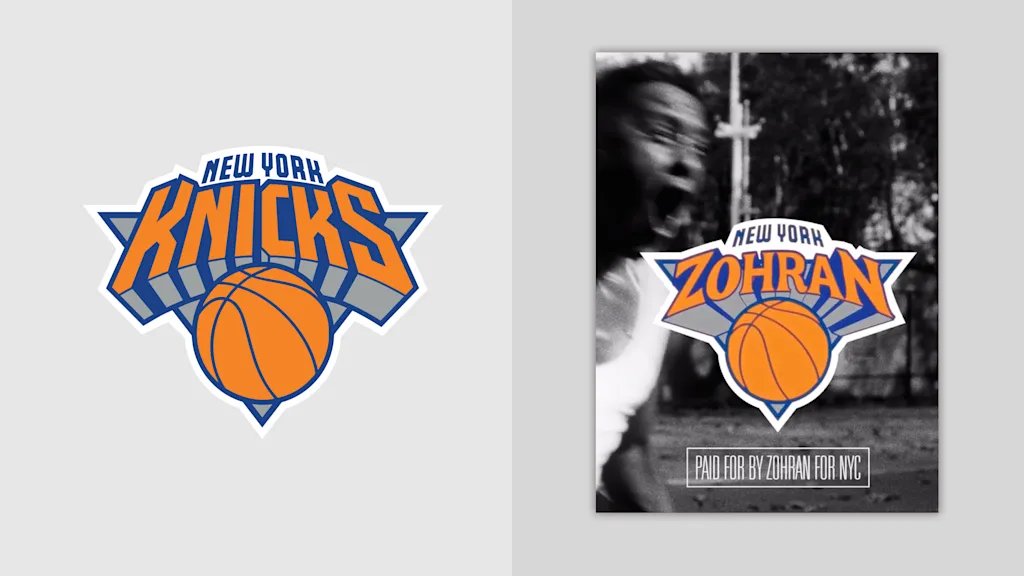After Zohran Mamdani’s campaign aired a commercial that used a New York Knicks-style campaign logo with “Zohran” displayed atop an image of a basketball, the NBA team asked the New York City mayoral candidate’s team to take it down.
The Mamdani ad, which was broadcast during the Knicks’s opening game last week, shows black-and-white footage of a pickup basketball game in a park as the narrator says, “New York, this is our year.” There are shots of Mamdani campaigning interspersed with the pickup game, and the narrator says, “Things can be different. Hope is back,” before the Knicks-style logo flashes on the screen over the sound of drums.
The Knicks, whose owner donated last year to Mayor Eric Adams, weren’t happy with the knockoff logo and sent a cease-and-desist letter to the Mamdani campaign asking them to knock it off, according to the New York Post, which first reported the letter. The campaign says it will comply and pulled the ads on Friday.
The Mamdani campaign said it was adjusting the ad, and “while the Knicks might not be able to publicly support our campaign, we’re proud to publicly support our NY Knicks,” campaign spokesperson Dora Pekec said in a statement.
But it’s not the first campaign to lean on the visual tropes of a beloved brand to attempt to say something about hometown pride or a candidate’s values in a single image.
Before Mamdani’s Knicks logo, there’s been a history of branding knockoffs
In 2022, Tim Short, a Republican state legislative candidate from Georgia, used a logo designed to look like the Fox News logo, searchlights and all, but the searchlights were later taken off without explanation. That same year, Matt Jenkins, a Democrat and U.S. House candidate in New Jersey, was hit with a cease-and-desist letter from Wawa, after the convenience store chain noticed the similarities between the birds in his campaign’s logo and theirs.
Jenkins said in a social media post at the time that the design was intentional. “For a lot of people in our district, Wawa represents them. When we launched this race to replace Chris Smith, I wanted our logo to feel instantly familiar,” he wrote.
And that’s what these knockoff logos are meant to signal. By leaning in on a familiar logo, they visually convey that a candidate is “one of us,” as if to say: This candidate is a Knicks/Fox News/Wawa/[enter brand name here] fan, just like you.

Visual parody doesn’t equal a winning brand
Brands, though, are quick to distance themselves. After a U.S. House candidate in Michigan named Shelby Campbell refused to comply with a cease-and-desist letter from the Campbell’s Company over the Democratic candidate’s logo that was designed to look like one of its soup cans, the company filed suit this month.
Claiming her actions “are not innocent parody but are designed to capitalize on Campbell’s iconic brand and associate one of the country’s most famous and enduring brands with her political campaign,” the company said her rip-off logo confused customers.
While campaigns can’t use knockoff logos without inviting potential legal action, that doesn’t mean some won’t try. By designing logos based on popular brands, campaigns hope some of that brand magic will rub off at the ballot box.
But would-be copycats, take note: While Mamdani, with his own distinctive campaign logo, may well be an exception, other recent candidates who’ve used major brand logos haven’t fared as well. In Georgia, Short’s short-lived Fox News logo didn’t help him win the Republican primary. Jenkins rebranded to a bird-less logo and lost.
Sometimes it’s better to come up with your own idea.

